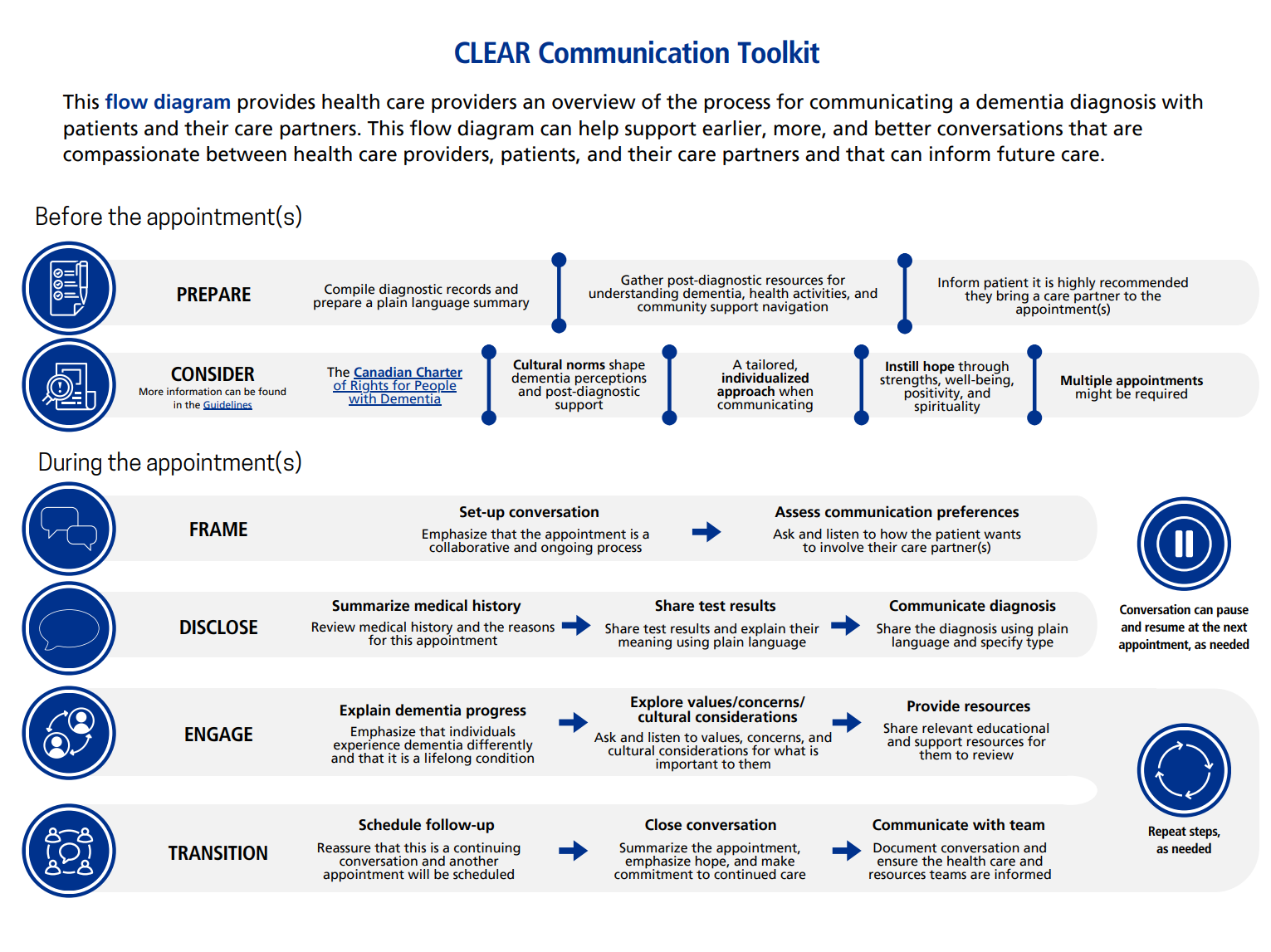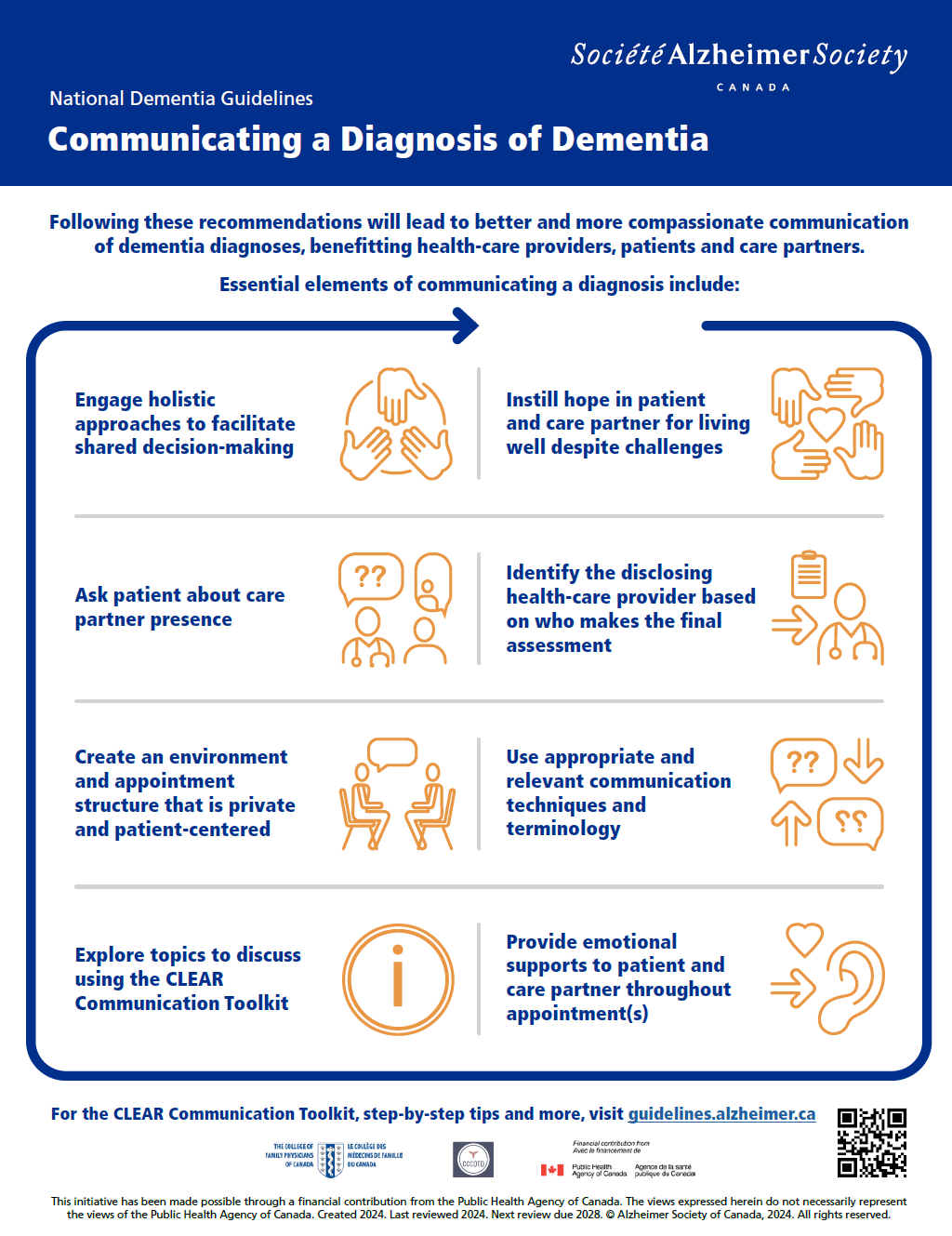National Dementia Guidelines for disclosing a diagnosis
A toolkit, detailed report, and infographic help family physicians, specialists and nurse practitioners communicate a dementia diagnosis more effectively.

The National Dementia Guidelines: Disclosing and Communicating a Diagnosis of Dementia help family physicians, nurse practitioners and specialists discuss dementia with patients and care partners.
These guidelines and tools meet an urgent need. Worldwide, 50 per cent of people living with dementia and their caregivers have reported dissatisfaction with the disclosure process. Many physicians say it's one of the most challenging parts of their work.
All these tools and guidelines have been created in partnership with physicians, people living with dementia, and care partners.
Download the CLEAR Communication Toolkit and the Full Guidelines Report
CLEAR Communication Toolkit
National Dementia Guidelines Report
Download the CLEAR Communication Toolkit
The Compassionate Language and Empathetic Approaches for Respectful Dementia Disclosure (CLEAR) Communication Toolkit has been user tested. It includes a flow diagram of steps for communicating a dementia diagnosis and a framework to help health-care providers implement rapidly.
Download the Full Guidelines Report
This extensive report includes a full grade evidence table and reference list. It also provides further detail on each of eight guideline recommendations, as well as cultural considerations for each recommendation. This report has been reviewed by multiple partner and user groups.
Download the infographic
This one-page, printable PDF is designed for health-care providers to use as a visual, an appointment reference or a handout. It provides a quick summary of the eight recommendations in these guidelines. This asset has been reviewed by user groups.
Who created these guidelines
The National Dementia Guidelines: Disclosing and Communicating a Diagnosis of Dementia were developed by the Alzheimer Society of Canada in partnership with the College of Family Physicians of Canada and the Canadian Consensus Conference on the Diagnosis and Treatment of Dementia.
This initiative has been made possible through a financial contribution from the Public Health Agency of Canada. The views expressed herein do not necessarily represent the views of the Public Health Agency of Canada.
For more details on these and other collaborators and partners, view the acknowledgements for this project.
For more information
If you have any questions or feedback about these guidelines and related tools, please contact smain@alzheimer.ca.
To read the guidelines by topic and phase
The guidelines are divided into three phases and a total of eight major recommendations. Each recommendation includes related notes on cultural considerations.
You can read the complete guidelines by topic and phase by scrolling further down this page, or by downloading the full guidelines report.



